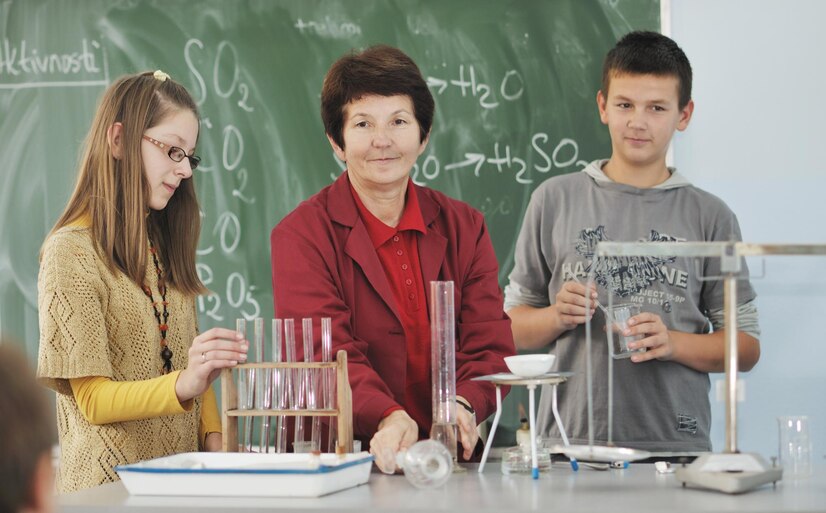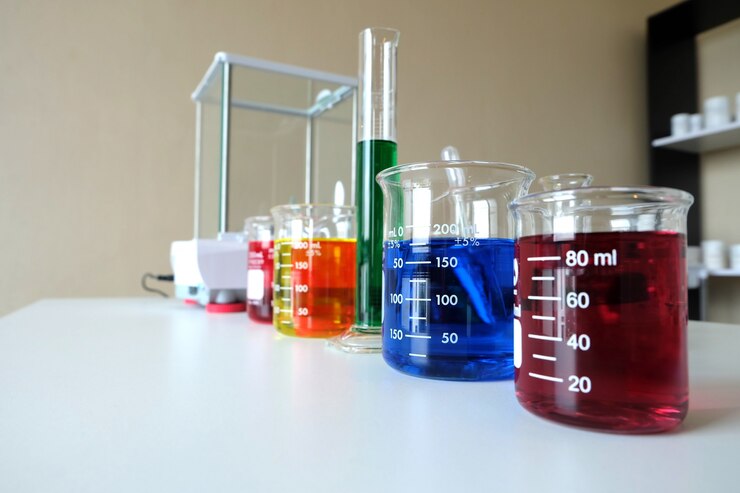The Hidden World of Chemistry and Its Everyday Wonders
Ever wondered how a tiny spark can ignite a roaring fire, or why your morning coffee smells so divine? The answers lie in the fascinating world of chemistry. This blog post is your ticket to understanding how chemistry isn’t just a subject confined to textbooks and labs but a crucial part of our daily lives. Whether you’re a student, a parent helping with homework, or simply curious about the science that surrounds us, this guide will show you just how relevant and exciting chemistry can be.
The Basics of Chemistry
Chemistry is often called the “central science” because it connects other fields like biology, physics, and environmental science. But what exactly is chemistry? At its core, chemistry is the study of matter—anything that has mass and takes up space. It explores how substances interact, combine, and change, laying the groundwork for many other scientific disciplines.
In simpler terms, chemistry helps us understand what things are made of and how they work. From the air we breathe to the food we eat, chemistry is all around us. And it’s not just about mixing chemicals in a lab; it’s about understanding the principles that govern the universe.
Chemistry in Cooking
Believe it or not, every time you step into your kitchen, you’re stepping into a chemistry lab. Cooking is one of the most practical applications of chemistry. When you bake a cake, for example, flour, sugar, eggs, and baking powder interact in a chemical process that transforms them from a gooey batter into a fluffy delight.
Consider the Maillard reaction, which occurs when proteins and sugars in food are exposed to heat, creating complex flavours and aromas. This chemical reaction is why grilled meats taste so savoury and why your bread gets that beautiful brown crust. Understanding these chemical processes can make you a better cook and help you appreciate the science behind your favourite dishes. Consider doing the GCSE Chemistry Online Learning for Home Schoolers.
Chemistry in Medicine
Chemistry plays a pivotal role in the field of medicine. From the development of new drugs to understanding how they interact with the human body, chemistry is at the forefront of medical advancements. For instance, the painkillers you take for a headache or the antibiotics that fight infections are all products of chemical research.
Pharmacology, the study of how drugs interact with biological systems, relies heavily on chemistry. Chemists work tirelessly to develop medications that are more effective and have fewer side effects. Without chemistry, modern medicine as we know it would not exist.
Chemistry in Environmental Science
Our environment is a complex system where various chemical processes occur. Chemistry helps us understand these processes, from the air we breathe to the water we drink. For example, environmental chemists study pollutants and their impact on ecosystems. They develop methods to reduce pollution and create sustainable solutions for a healthier planet.
Chemistry also plays a role in renewable energy. Scientists are working on chemical processes to produce cleaner fuels and improve energy storage. These advancements are crucial for combating climate change and ensuring a sustainable future.

Chemistry in Personal Care Products
The lotions, shampoos, and cosmetics you use daily are all products of chemistry. Formulating these products involves understanding how different chemicals interact to achieve the desired effect. For instance, emulsifiers are used to blend oil and water in lotions, while surfactants in shampoos help remove dirt and oil from your hair.
Chemists also work to ensure that these products are safe for use. They test for potential allergens and irritants, making sure that the products meet stringent safety standards. Next time you apply your favourite skincare product, remember that chemistry is working behind the scenes to keep you looking and feeling great.
Chemistry in Agriculture
Agriculture relies heavily on chemistry for the development of fertilisers, pesticides, and herbicides. These chemicals help increase crop yields and protect plants from pests and diseases. Soil chemistry is another important aspect, as it helps farmers understand nutrient availability and soil health.
Advancements in agricultural chemistry have led to the development of more sustainable farming practices. For instance, slow-release fertilisers reduce nutrient runoff, minimising environmental impact. Understanding the chemistry behind these products can help us appreciate the science that feeds the world.
Chemistry in Forensic Science
Forensic science, the field that helps solve crimes, relies extensively on chemistry. Techniques like fingerprint analysis, blood tests, and DNA profiling are all rooted in chemical principles. Forensic chemists analyse evidence from crime scenes to identify substances and link them to suspects.
One fascinating application is the use of chromatography to separate and identify compounds in a sample. This technique can be used to detect drugs, explosives, and even poisons. By understanding the chemistry behind these methods, forensic scientists can provide crucial evidence in criminal investigations.

Conclusion
Chemistry is all around us, influencing every aspect of our lives. From the food we eat to the technology we use, chemistry helps us understand and improve the world. By exploring its applications in various fields, we can appreciate the science that shapes our daily experiences.
Whether you’re a student, a professional, or simply curious, understanding chemistry can open up a world of possibilities. If you’re interested in learning more, consider taking a chemistry course or reading up on the latest research. The wonders of chemistry are waiting to be discovered, and who knows—you might find it as fascinating as we do.




